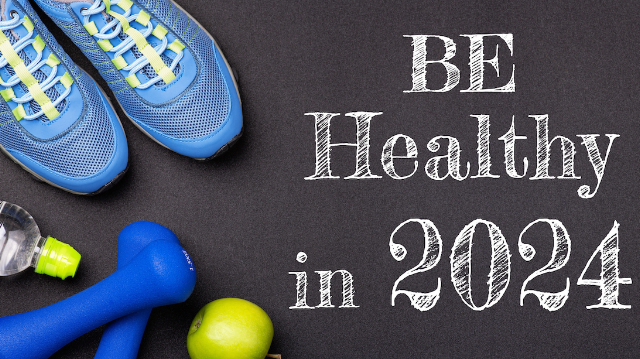Health Blog: Solutions & Wellness Tips
Unlocking Your Fitness and Weight Loss Goals

A Personalized Approach to Achieving Your New Year's Resolutions
As the year draws to a close, many people start looking ahead to the New Year with a renewed sense of purpose and determination. Among the most popular New Year's resolutions are fitness and weight loss goals, a testament to the growing desire for a healthier and more active lifestyle. However, achieving these goals can often be a daunting task, especially when faced with a barrage of conflicting information and unrealistic expectations.
Prioritizing Personalized Strategies
The key to success lies in adopting a personalized approach that aligns with your individual needs, preferences, and lifestyle. This means tailoring your fitness and weight loss goals to your current fitness level, any underlying health conditions, and your personal motivations. It also involves finding activities you genuinely enjoy, whether it's brisk walking, swimming, cycling, or dancing. Remember, exercise should be a source of both physical and mental well–being, not a chore or punishment.
Setting SMART Goals
Setting Specific, Measurable, Achievable, Relevant, and Time–Bound (SMART) goals is crucial for staying on track and maintaining motivation. Instead of aiming for vague resolutions like "lose weight" or "get in shape," break down your goals into smaller, more manageable steps. For instance, you could aim to walk for 30 minutes three times a week, gradually increasing the duration and intensity as you progress.
Incorporating Physical Therapy Expertise
Physical therapists can play a vital role in your fitness journey, providing expert guidance and support tailored to your specific needs. They can help you develop a safe and effective exercise program that addresses any underlying physical limitations or injuries. Additionally, physical therapists can provide personalized instruction on proper form and technique to prevent injuries and maximize the effectiveness of your workouts.
Nutrition: The Cornerstone of Success
While physical activity is essential for achieving your fitness and weight loss goals, nutrition plays an equally important role. Focus on consuming a balanced diet rich in fruits, vegetables, whole grains, and lean proteins. Avoid processed foods, sugary drinks, and excessive amounts of saturated and unhealthy fats. Consult a registered dietitian or nutritionist for personalized dietary guidance.
Seeking Professional Support
Remember, you're not alone in this journey. If you're struggling to achieve your fitness and weight loss goals, don't hesitate to seek professional support. Physical therapists, registered dietitians, and personal trainers can provide valuable guidance and accountability to help you stay on track and reach your desired outcomes.
Embrace the Journey
Achieving your fitness and weight loss goals is a journey, not a destination. There will be ups and downs along the way, but with perseverance and a personalized approach, you can successfully transform your health and well–being. Embrace the process, celebrate your accomplishments, and never give up on your commitment to a healthier and more fulfilling life.
References:
- Centers for Disease Control and Prevention. (2023, November 16). Physical activity. Retrieved from CDC.gov
- National Institutes of Health. (2023, November 15). Weight management. Retrieved from Niddk.Nih.gov
- American Council on Exercise. (2023). ACE-certified personal trainer handbook. American Council on Exercise.
December 6, 2023
Back to Health BlogRECENT POSTS
- How Physical Therapy Can Tame Whiplash-Related Symptoms
- Exercise Therapy May Provide Relief for Chemotherapy-Related Issues
- Unlocking Relief From Elbow Pain With Hands-On Therapy and Exercise
- Are Deep Squats Really as Bad as We Think?
- Reclaiming Your Grip: The Power of Hands-On Therapy for Tennis Elbow
- Runners Can Overcome a Common Knee Condition With Physical Therapy
- How Physical Therapy Can Help Older Adults Stay on Their Feet
- What You Need to Know About Alcohol and Heart Health
- Exercise Therapy Provides Strong Evidence of Its Effectiveness
- Strength in Age: The Power of Resistance Training for Older Adults
